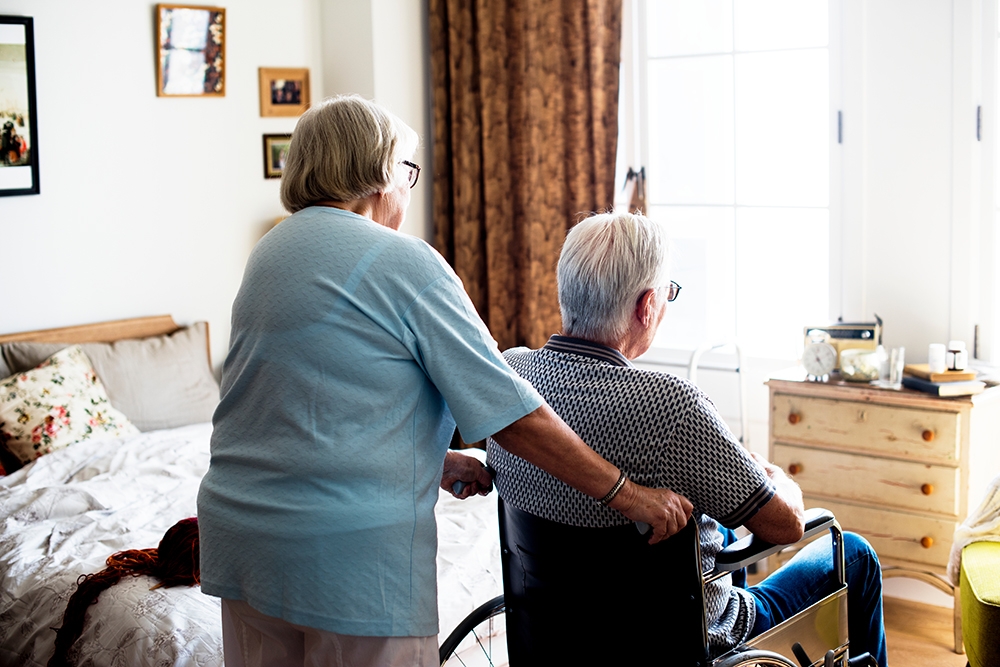The Life of an Unpaid Carer
August 15 2019
We at Brosch Direct know an unpaid care role is so much more than the everyday assistance for those unable to live comfortably by themselves. It's a full time job administering mediciine, providing practical and emotional support, personal care, and helping with physical and financial matters all whilst trying to maintain a life of theor own.
New research released for Carers Week 2019 has revealed that there are now nearly 9 million adult carers currently in the UK, up from 6.3 million in 2011. These are unpaid carers looking after loved ones living with disability, illness, or as they grow older in their own homes.
This is such a vital role but sometimes those not affected don’t stop to consider the effect it has on those caring for the person suffering. One in three unpaid carers say they suffer with loneliness due to isolation and not having enough time, or money, or participate in leisure activities.
In honour of Carers Week 2019, and to highlight the incredible strength and relentlessness behind unpaid care work, we spoke to a carer about their experience and the trials and tribulations they encountered.
Here Katie* talks about caring for her Nan who suffered with Alzheimer’s:
“Myself and my family provided care for my Nan. My Grandad had been married to her for 63 years and wanted to fulfil his wedding vows of ‘in sickness and in health’, so wanted to keep her at home for as long as possible.
It started with small things like forgetting that she had seen me earlier in the day or misplacing things. Then it turned into hallucinations and she would make strange comments but then have no recollection of them a short while after. We knew something was wrong when she started to go missing and my Grandad had to remove the front door key for her safety.
She would struggle to distinguish family members and began to argue that my Grandad wasn’t her husband. Despite it all, he stood by her to the very end, ensuring she had the very best care which often meant he suffered himself.
I know she didn’t understand her behaviour but it was still very difficult to come to terms with. This was the lady who taught me to tie my shoes, a lady who when I needed it behaved as a second parent to me. Ultimately, I had to tell her the time because she couldn’t understand the clock anymore and would need help to put her shoes on.


The role reversal was hard but I also took it as an opportunity to repay her for the years of outstanding love and care she gave to me. The highlight for me was being able to comfort her and knowing that in a difficult time myself and my family who knew her best were able to deliver a level of personal care that a stranger wouldn’t be able to.
I would regularly visit as I only live around the corner. I provided assistance for approximately two years before we sadly had to get full time residence in a care home for her.
My Grandad provided round the clock care. He would do everything from washing her clothes and cooking her food to changing her bed if soiled and helping her shower/bathe.
She could sometimes become confused and aggressive and so I would encourage her to stay with me, allowing my Grandad peace and safety while tending to her room or looking after himself.
I would help her get dressed or changed for bed sometimes and also if he needed help during the night he called me out to come and assist him in calming her down or getting her up if she fell out of bed. At times I would have to cancel my plans, not because my Grandad asked me to but because I felt it was my duty to be there and give him a time out.
My Nan and Grandad had a fantastic marriage and a wonderful bond, and I know that sadly he did become lonely and struggle to have adult conversations with people towards the end. There would often be long periods where the only person he would be able to talk to was my Nan, who often didn’t understand so it was a very lonely place for him at times. Even once a week, to go to a coffee morning or something to encourage them to still have a social life of their own would be wonderful.”
Even now, we are almost two years on from losing her and he still stops in the living room doorway every night and turns to her photo and stares at her for a few minutes. My Mum asked him one night if he was okay. His reply: ‘I like to make sure I remember her face every day. I don’t want to forget her in my mind.’ They’re my favourite love story and if my marriage could be half what theirs was I’d be a very happy woman.”
If you, or someone you know is struggling with the effects of caring for a loved one help and advice is available from the Carers UK website: https://www.carersuk.org
*Names have been changed to protect identities.


